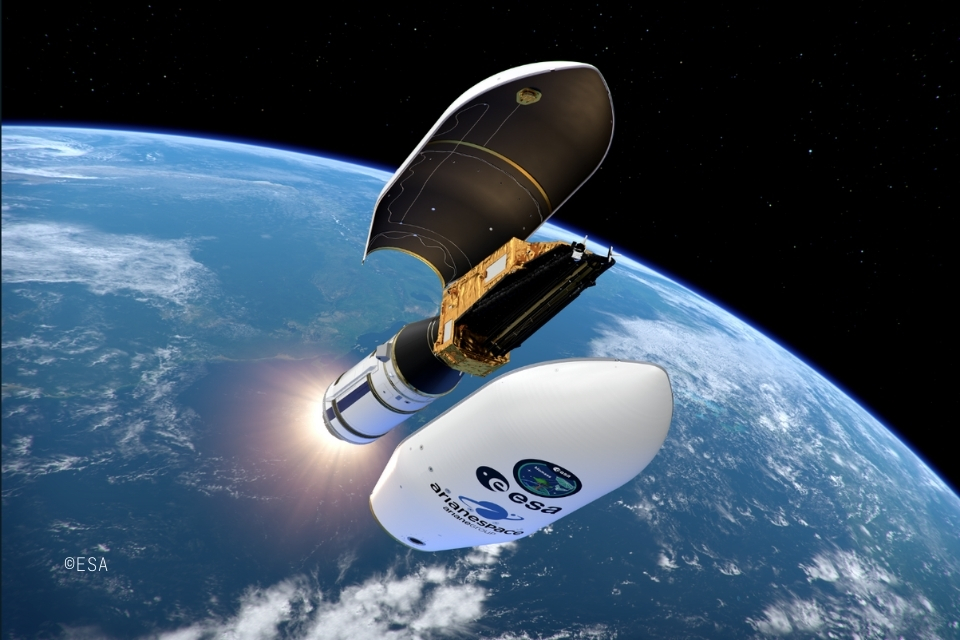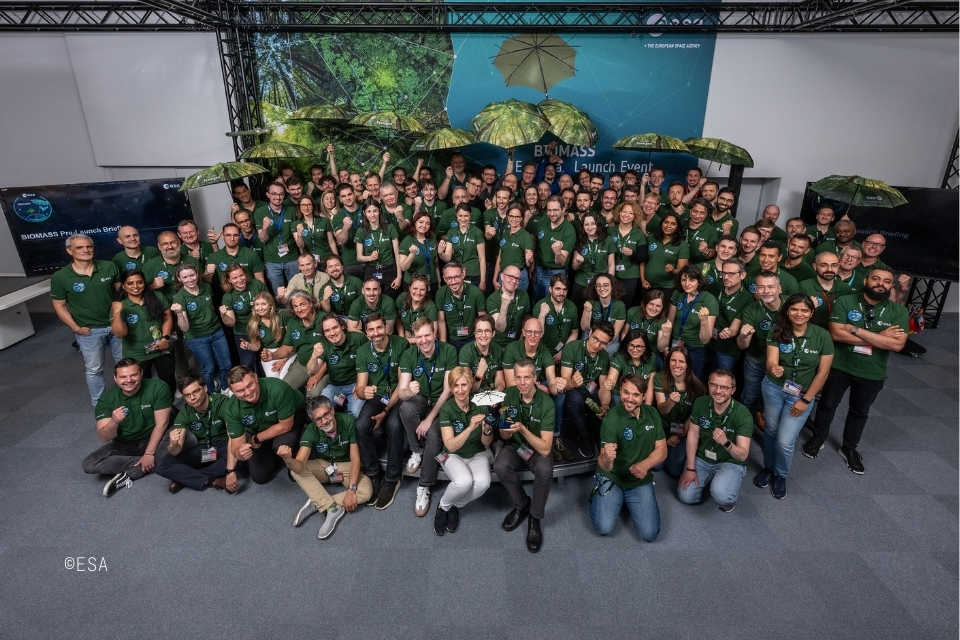Human activities — especially fossil fuel combustion and deforestation — have raised atmospheric carbon dioxide levels by 50% since pre-industrial times (circa 1850). Yet, significant gaps remain in our understanding of how carbon moves between Earth’s surface and the atmosphere — a process known as the carbon cycle. The ESA Biomass mission aims to help close these gaps by providing critical estimates of forest biomass, a key indicator of stored carbon.
Biomass is equipped with the first-ever P-band radar deployed in space. This advanced radar technology can penetrate cloud cover and dense forest canopies, scattering signals off vegetation to reveal detailed information about forest structure, including biomass and tree height.
Data from the Biomass mission will significantly enhance our ability to accurately estimate the amount of carbon stored in the organic matter of forests—known as biomass. This will reduce uncertainties in carbon stock and flux assessments, especially those related to land-use changes, deforestation, and forest regrowth.
Beyond forests, the data collected by Biomass will also improve our understanding of subsurface geology in arid regions, the internal structure of ice sheets, and the topography of forest floors—making it a key tool for monitoring Earth’s dynamic systems.

Telespazio Germany’s key role in the Biomass mission
Several teams at Telespazio Germany are involved in this mission.
Within the Flight Control Team, Telespazio Germany personnel are responsible for several key roles. These include support for Data Handling, the Attitude and Orbit Control System (AOCS), Power and Thermal systems, as well as general system analysis. Telespazio staff also contribute to the C-Team supporting the Biomass launch.
The company is actively involved in mission preparation through simulations and IT support. One team member serves as the Prime Simulation Officer, while another acts as the IT Coordinator. This IT team acts as the liaison between the mission and the IT services provided by MOI-IT, playing a crucial role during both the launch and the Launch and Early Orbit Phase (LEOP).
A Ground Operations Manager from Telespazio Germany is also part of the Biomass Operations Management (OM) Team, further strengthening the company’s involvement in mission operations.
In addition to technical responsibilities, Telespazio Germany also provides administrative support to the mission.

Huge thanks to everyone involved:
Martin Shaw, Helena Mainka, Angel Miguel Fernandez Lois, Bader Al Mal, Omiris Papadatos Vasilakis, Julia Fortuno Benavent, Felipe Metelo, Justin Howard, Necel Dy, Richard Cox, Sorina Galita, Heike Sillack, Anne Sophie Hartmann , Aybike Kolmas , David Patterson and Marco Bruno.

